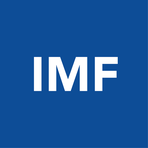Trade Winds: South Korea and the US Set to Navigate New Waters
April 20, 2025, 3:53 pm

Location: United States, District of Columbia, Washington
Employees: 1001-5000
Founded date: 1944
Total raised: $33.23M

Location: United States, District of Columbia, Washington
Employees: 10001+
Founded date: 1944
Total raised: $530M
In the world of trade, every meeting is a potential turning point. This week, South Korea and the United States are set to engage in crucial trade talks in Washington. The backdrop? The spring meetings of the International Monetary Fund and World Bank. The stakes are high, and the air is thick with anticipation.
South Korea's trade ministry has confirmed that Finance Minister Choi Sang-mok and Trade Minister Ahn Duk-geun will sit down with US Trade Representative Jamieson Greer and Treasury Secretary Scott Bessent. This gathering is not just a routine affair; it’s a strategic maneuver in a complex game of economic chess.
The US has extended the olive branch for these discussions. The hope is to address the looming specter of tariffs. President Trump had previously announced a hefty 25% "reciprocal" tariff on South Korean goods. This move sent ripples through the markets, raising concerns among businesses and consumers alike. While the president has paused these tariffs, the threat still lingers like a shadow.
South Korea's economic landscape is heavily intertwined with the US. The two nations share a robust trade relationship, but recent tensions have tested this bond. South Korea is eager to lower the tariff barrier. A successful negotiation could mean relief for exporters and a boost for the economy.
The timing of these talks is significant. The spring meetings of the IMF and World Bank attract global attention. Leaders from around the world converge to discuss pressing economic issues. For South Korea, this is an opportunity to showcase its commitment to free trade and collaboration.
But what lies beneath the surface? The geopolitical landscape is shifting. South Korea's next leadership may bring a change in direction. There are whispers of a potential pivot towards Beijing and Pyongyang. This could complicate the US-South Korea alliance. The trade talks this week may serve as a litmus test for future relations.
Trade is more than just numbers on a spreadsheet. It’s about trust, partnerships, and shared goals. The US and South Korea have weathered storms together. They’ve navigated the choppy waters of global trade, but the currents are changing.
As the ministers prepare for their discussions, the agenda remains under wraps. Speculation runs rampant. Will they tackle tariffs head-on? Or will they focus on broader economic cooperation? The uncertainty adds an element of intrigue to the proceedings.
Both nations have much to gain. For South Korea, reducing tariffs could open doors to new markets. It could invigorate industries, particularly in technology and manufacturing. For the US, a strong partnership with South Korea can bolster its position in Asia. It’s a win-win scenario, but only if both sides are willing to compromise.
The economic landscape is like a vast ocean. It’s unpredictable and ever-changing. Trade policies can shift like the tides. A small change in one country can have a ripple effect across the globe. This is why these talks are so critical.
In recent years, trade tensions have escalated worldwide. Countries are re-evaluating their relationships. Protectionism has reared its head, and nations are grappling with the consequences. South Korea and the US must navigate these turbulent waters carefully.
The outcome of this week’s discussions could set the tone for future negotiations. It could either pave the way for smoother sailing or lead to further complications. The world will be watching closely.
As the ministers gather, they carry the weight of their nations on their shoulders. The stakes are high, and the pressure is palpable. They must find common ground amidst differing interests. It’s a delicate dance, one that requires skill and finesse.
Trade is not just about goods and services. It’s about relationships. It’s about understanding each other’s needs and finding ways to meet them. The US and South Korea have a long history of collaboration. This meeting is a chance to reinforce that bond.
In the end, the success of these talks will depend on more than just economic calculations. It will hinge on diplomacy, trust, and a shared vision for the future. The world is watching, and the outcome could shape the course of trade relations for years to come.
As the sun rises over Washington, the stage is set. The ministers are ready to engage in discussions that could alter the trajectory of their nations. The winds of trade are shifting, and it’s time to navigate the new waters ahead.
South Korea's trade ministry has confirmed that Finance Minister Choi Sang-mok and Trade Minister Ahn Duk-geun will sit down with US Trade Representative Jamieson Greer and Treasury Secretary Scott Bessent. This gathering is not just a routine affair; it’s a strategic maneuver in a complex game of economic chess.
The US has extended the olive branch for these discussions. The hope is to address the looming specter of tariffs. President Trump had previously announced a hefty 25% "reciprocal" tariff on South Korean goods. This move sent ripples through the markets, raising concerns among businesses and consumers alike. While the president has paused these tariffs, the threat still lingers like a shadow.
South Korea's economic landscape is heavily intertwined with the US. The two nations share a robust trade relationship, but recent tensions have tested this bond. South Korea is eager to lower the tariff barrier. A successful negotiation could mean relief for exporters and a boost for the economy.
The timing of these talks is significant. The spring meetings of the IMF and World Bank attract global attention. Leaders from around the world converge to discuss pressing economic issues. For South Korea, this is an opportunity to showcase its commitment to free trade and collaboration.
But what lies beneath the surface? The geopolitical landscape is shifting. South Korea's next leadership may bring a change in direction. There are whispers of a potential pivot towards Beijing and Pyongyang. This could complicate the US-South Korea alliance. The trade talks this week may serve as a litmus test for future relations.
Trade is more than just numbers on a spreadsheet. It’s about trust, partnerships, and shared goals. The US and South Korea have weathered storms together. They’ve navigated the choppy waters of global trade, but the currents are changing.
As the ministers prepare for their discussions, the agenda remains under wraps. Speculation runs rampant. Will they tackle tariffs head-on? Or will they focus on broader economic cooperation? The uncertainty adds an element of intrigue to the proceedings.
Both nations have much to gain. For South Korea, reducing tariffs could open doors to new markets. It could invigorate industries, particularly in technology and manufacturing. For the US, a strong partnership with South Korea can bolster its position in Asia. It’s a win-win scenario, but only if both sides are willing to compromise.
The economic landscape is like a vast ocean. It’s unpredictable and ever-changing. Trade policies can shift like the tides. A small change in one country can have a ripple effect across the globe. This is why these talks are so critical.
In recent years, trade tensions have escalated worldwide. Countries are re-evaluating their relationships. Protectionism has reared its head, and nations are grappling with the consequences. South Korea and the US must navigate these turbulent waters carefully.
The outcome of this week’s discussions could set the tone for future negotiations. It could either pave the way for smoother sailing or lead to further complications. The world will be watching closely.
As the ministers gather, they carry the weight of their nations on their shoulders. The stakes are high, and the pressure is palpable. They must find common ground amidst differing interests. It’s a delicate dance, one that requires skill and finesse.
Trade is not just about goods and services. It’s about relationships. It’s about understanding each other’s needs and finding ways to meet them. The US and South Korea have a long history of collaboration. This meeting is a chance to reinforce that bond.
In the end, the success of these talks will depend on more than just economic calculations. It will hinge on diplomacy, trust, and a shared vision for the future. The world is watching, and the outcome could shape the course of trade relations for years to come.
As the sun rises over Washington, the stage is set. The ministers are ready to engage in discussions that could alter the trajectory of their nations. The winds of trade are shifting, and it’s time to navigate the new waters ahead.